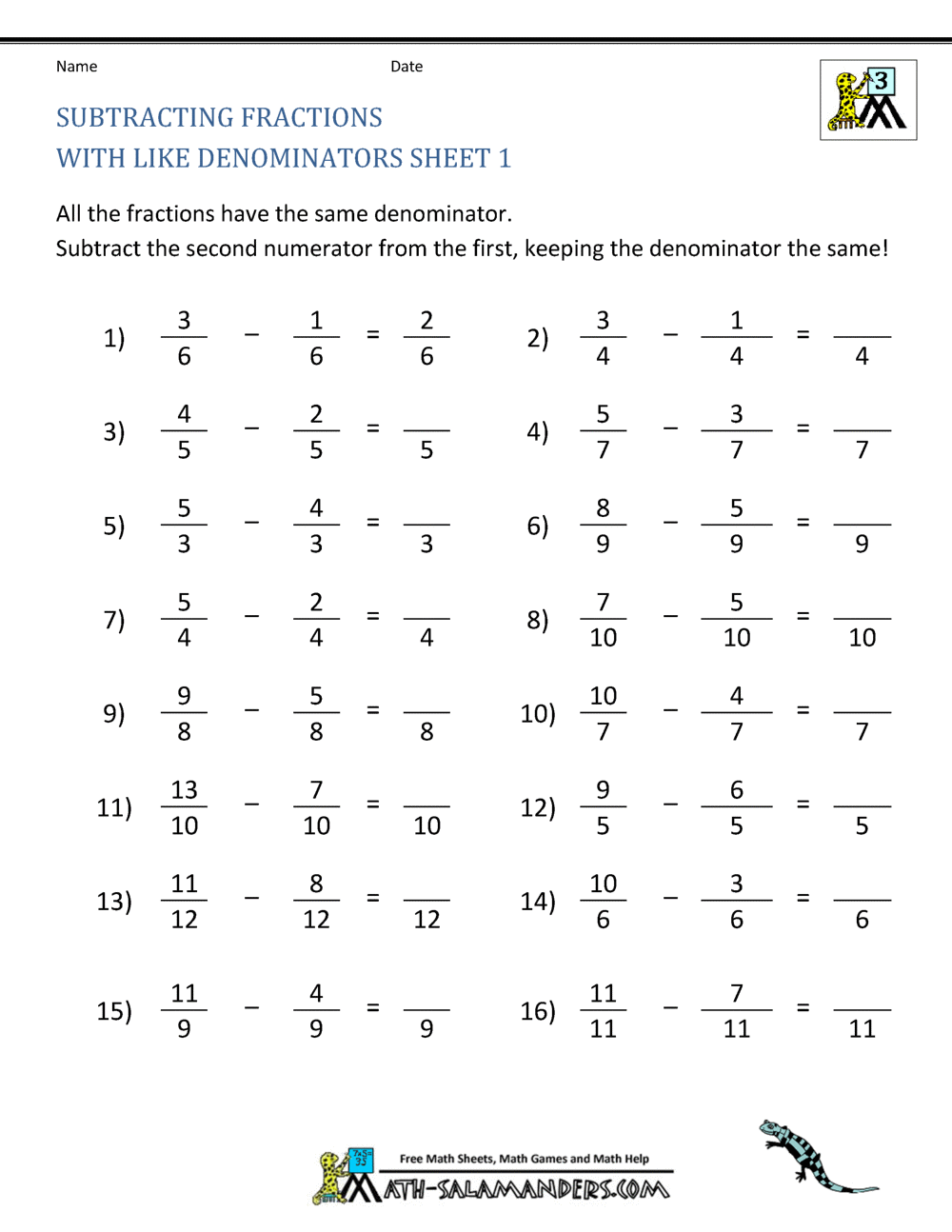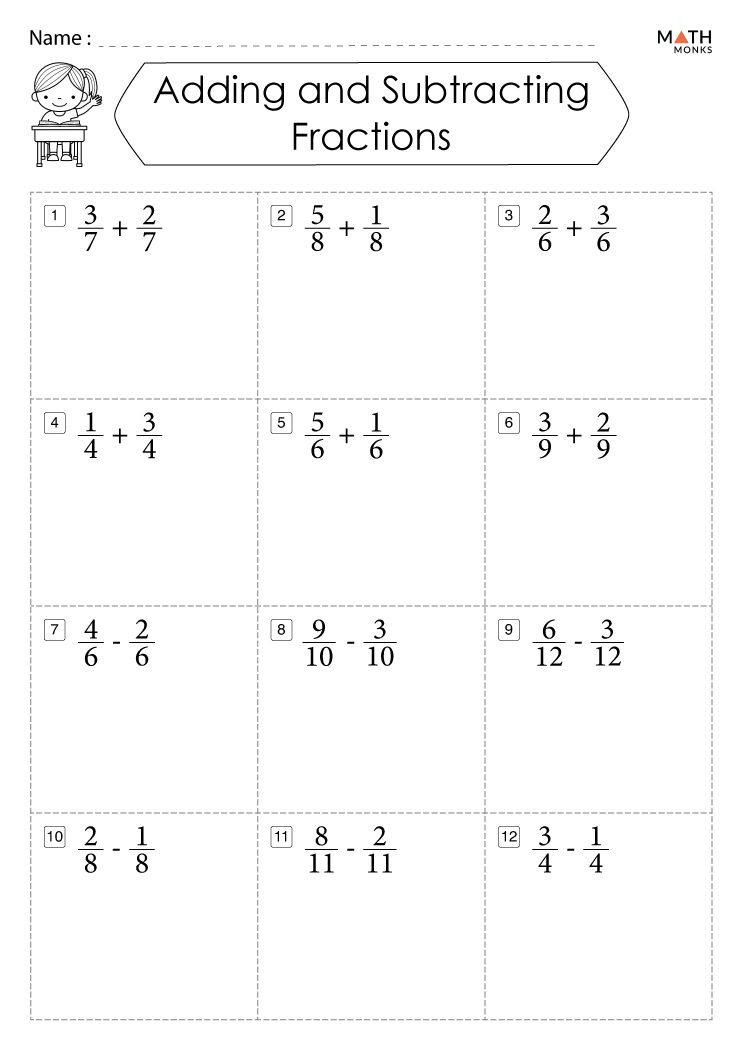Conquering Fractions: Mastering Addition and Subtraction
Ever slice a pizza and wonder about the math behind sharing equally? Or measure ingredients for a recipe only to find you need to adjust proportions? You've stumbled into the realm of fractions. Understanding fractional math, especially addition and subtraction, is a cornerstone of mathematical literacy. It's more than just passing a test; it's a crucial skill that powers everyday life, from cooking and carpentry to engineering and finance. This deep dive explores everything from the historical origins to practical problem-solving with fractions.
The concept of dividing wholes into smaller parts is ancient, with evidence of fraction use appearing in Egyptian papyri thousands of years ago. They used unit fractions, primarily with a numerator of 1, and complex systems of notation to express other fractions. The Babylonians, too, grappled with fractions, using a base-60 system which influenced how we measure time and angles today. The development of our modern fraction notation, with the numerator over the denominator, is largely attributed to the work of Arab mathematicians, specifically al-Khwarizmi. This clear representation paved the way for significant advancements in the field.
The importance of fractional addition and subtraction lies in their ability to represent and manipulate parts of wholes. Imagine building a house without accurate measurements of lumber, or calculating interest rates without understanding percentages (which are just fractions of 100). One of the main issues learners face is grasping the concept of the common denominator. Unlike adding whole numbers, we can’t simply add the numerators of fractions with different denominators. This requires finding a common denominator, essentially making the “size” of the fractional parts equal before combining them.
Adding fractions with the same denominator is straightforward: simply add the numerators and keep the denominator the same. For example, 1/5 + 2/5 = 3/5. Subtraction follows the same rule: 3/5 - 1/5 = 2/5. However, when denominators differ, finding a common denominator is necessary. For instance, with 1/2 + 1/3, we find the least common multiple of 2 and 3, which is 6. Converting both fractions to have a denominator of 6 (1/2 becomes 3/6, and 1/3 becomes 2/6) allows us to add them: 3/6 + 2/6 = 5/6.
Mastering fraction addition and subtraction offers numerous benefits. First, it strengthens fundamental mathematical understanding, creating a foundation for more complex concepts like algebra and calculus. Second, it enhances practical problem-solving skills in various contexts, empowering individuals to navigate real-world scenarios involving measurements, proportions, and ratios. Third, it improves critical thinking by encouraging analytical approaches to breaking down complex problems into smaller, manageable parts.
Action plan for mastering fraction addition and subtraction: Start with understanding the basic concepts of fractions (numerator, denominator, equivalent fractions). Practice finding common denominators using least common multiples. Work through numerous examples, progressing from simple to more complex problems. Use visual aids like pie charts or fraction bars to reinforce understanding. Finally, apply your knowledge to real-world scenarios like cooking, budgeting, or DIY projects.
Advantages and Disadvantages of Working with Fractions
| Advantages | Disadvantages |
|---|---|
| Precision in representing parts of a whole. | Can be complex to manipulate compared to whole numbers. |
| Essential for many real-world applications. | Require a solid understanding of basic concepts like common denominators. |
| Foundation for more advanced math concepts. | Can lead to errors if procedures are not followed carefully. |
Best Practice: Always simplify your final answer to its lowest terms.
FAQ: How do I find the least common multiple? Answer: Find the smallest number that both denominators divide into evenly.
Tip: Visualize fractions using diagrams to better grasp the concepts.
In conclusion, fraction math, specifically addition and subtraction, constitutes a critical element of mathematical literacy. From ancient civilizations' use of unit fractions to modern applications in diverse fields like engineering and finance, understanding fractions is essential for navigating our world. Mastering these concepts unlocks practical problem-solving skills, strengthens fundamental mathematical reasoning, and empowers individuals to confidently handle situations involving proportions, ratios, and measurements. Embrace the challenge of conquering fractions, and you’ll unlock a powerful tool for understanding and interacting with the world around you. Commit to practicing regularly, utilizing online resources and seeking help when needed. Your journey to mastering fractions starts now – take the first step and unlock the power of these fundamental mathematical concepts.

Division And Multiplication Of Fractions Worksheets | YonathAn-Avis Hai

Addition and Subtraction of Dissimilar Fraction worksheet | YonathAn-Avis Hai

fraction math addition and subtraction | YonathAn-Avis Hai

fraction math addition and subtraction | YonathAn-Avis Hai

4 Printable Mixed Fraction Arithmetic Math Worksheet Addition | YonathAn-Avis Hai

Worksheets On Adding Fractions | YonathAn-Avis Hai

Addition And Subtraction Fraction Worksheet | YonathAn-Avis Hai

Addition And Subtraction For Kindergarten Worksheets | YonathAn-Avis Hai

fraction math addition and subtraction | YonathAn-Avis Hai

Fraction Worksheets Adding And Subtracting | YonathAn-Avis Hai

fraction math addition and subtraction | YonathAn-Avis Hai

Addition and Subtraction word Problems | YonathAn-Avis Hai

5Th Grade Math Worksheets Adding And Subtracting Fractions | YonathAn-Avis Hai

fraction math addition and subtraction | YonathAn-Avis Hai

6th Grade Fractions Worksheets | YonathAn-Avis Hai